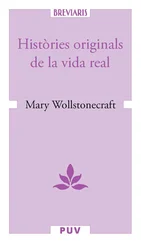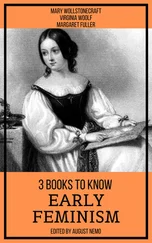Mary Wollstonecraft - Maria; Or, The Wrongs of Woman
Здесь есть возможность читать онлайн «Mary Wollstonecraft - Maria; Or, The Wrongs of Woman» — ознакомительный отрывок электронной книги совершенно бесплатно, а после прочтения отрывка купить полную версию. В некоторых случаях можно слушать аудио, скачать через торрент в формате fb2 и присутствует краткое содержание. Жанр: Биографии и Мемуары, literature_18, foreign_antique, на английском языке. Описание произведения, (предисловие) а так же отзывы посетителей доступны на портале библиотеки ЛибКат.
- Название:Maria; Or, The Wrongs of Woman
- Автор:
- Жанр:
- Год:неизвестен
- ISBN:нет данных
- Рейтинг книги:5 / 5. Голосов: 1
-
Избранное:Добавить в избранное
- Отзывы:
-
Ваша оценка:
- 100
- 1
- 2
- 3
- 4
- 5
Maria; Or, The Wrongs of Woman: краткое содержание, описание и аннотация
Предлагаем к чтению аннотацию, описание, краткое содержание или предисловие (зависит от того, что написал сам автор книги «Maria; Or, The Wrongs of Woman»). Если вы не нашли необходимую информацию о книге — напишите в комментариях, мы постараемся отыскать её.
Maria; Or, The Wrongs of Woman — читать онлайн ознакомительный отрывок
Ниже представлен текст книги, разбитый по страницам. Система сохранения места последней прочитанной страницы, позволяет с удобством читать онлайн бесплатно книгу «Maria; Or, The Wrongs of Woman», без необходимости каждый раз заново искать на чём Вы остановились. Поставьте закладку, и сможете в любой момент перейти на страницу, на которой закончили чтение.
Интервал:
Закладка:
“From the woods and back settlements, I returned to the towns, and learned to eat and drink most valiantly; but without entering into commerce (and I detested commerce) I found I could not live there; and, growing heartily weary of the land of liberty and vulgar aristocracy, seated on her bags of dollars, I resolved once more to visit Europe. I wrote to a distant relation in England, with whom I had been educated, mentioning the vessel in which I intended to sail. Arriving in London, my senses were intoxicated. I ran from street to street, from theater to theater, and the women of the town (again I must beg pardon for my habitual frankness) appeared to me like angels.
“A week was spent in this thoughtless manner, when, returning very late to the hotel in which I had lodged ever since my arrival, I was knocked down in a private street, and hurried, in a state of insensibility, into a coach, which brought me hither, and I only recovered my senses to be treated like one who had lost them. My keepers are deaf to my remonstrances and enquiries, yet assure me that my confinement shall not last long. Still I cannot guess, though I weary myself with conjectures, why I am confined, or in what part of England this house is situated. I imagine sometimes that I hear the sea roar, and wished myself again on the Atlantic, till I had a glimpse of you.” 5 5 The introduction of Darnford as the deliverer of Maria in a former instance, appears to have been an after-thought of the author. This has occasioned the omission of any allusion to that circumstance in the preceding narration. EDITOR. [Godwin’s note]
A few moments were only allowed to Maria to comment on this narrative, when Darnford left her to her own thoughts, to the “never ending, still beginning,” task of weighing his words, recollecting his tones of voice, and feeling them reverberate on her heart.
CHAPTER 4
PITY, and the forlorn seriousness of adversity, have both been considered as dispositions favourable to love, while satirical writers have attributed the propensity to the relaxing effect of idleness; what chance then had Maria of escaping, when pity, sorrow, and solitude all conspired to soften her mind, and nourish romantic wishes, and, from a natural progress, romantic expectations?
Maria was six-and-twenty. But, such was the native soundness of her constitution, that time had only given to her countenance the character of her mind. Revolving thought, and exercised affections had banished some of the playful graces of innocence, producing insensibly that irregularity of features which the struggles of the understanding to trace or govern the strong emotions of the heart, are wont to imprint on the yielding mass. Grief and care had mellowed, without obscuring, the bright tints of youth, and the thoughtfulness which resided on her brow did not take from the feminine softness of her features; nay, such was the sensibility which often mantled over it, that she frequently appeared, like a large proportion of her sex, only born to feel; and the activity of her well-proportioned, and even almost voluptuous figure, inspired the idea of strength of mind, rather than of body. There was a simplicity sometimes indeed in her manner, which bordered on infantine ingenuousness, that led people of common discernment to underrate her talents, and smile at the flights of her imagination. But those who could not comprehend the delicacy of her sentiments, were attached by her unfailing sympathy, so that she was very generally beloved by characters of very different descriptions; still, she was too much under the influence of an ardent imagination to adhere to common rules.
There are mistakes of conduct which at five-and-twenty prove the strength of the mind, that, ten or fifteen years after, would demonstrate its weakness, its incapacity to acquire a sane judgment. The youths who are satisfied with the ordinary pleasures of life, and do not sigh after ideal phantoms of love and friendship, will never arrive at great maturity of understanding; but if these reveries are cherished, as is too frequently the case with women, when experience ought to have taught them in what human happiness consists, they become as useless as they are wretched. Besides, their pains and pleasures are so dependent on outward circumstances, on the objects of their affections, that they seldom act from the impulse of a nerved mind, able to choose its own pursuit.
Having had to struggle incessantly with the vices of mankind, Maria’s imagination found repose in pourtraying the possible virtues the world might contain. Pygmalion formed an ivory maid, and longed for an informing soul. She, on the contrary, combined all the qualities of a hero’s mind, and fate presented a statue in which she might enshrine them.
We mean not to trace the progress of this passion, or recount how often Darnford and Maria were obliged to part in the midst of an interesting conversation. Jemima ever watched on the tip-toe of fear, and frequently separated them on a false alarm, when they would have given worlds to remain a little longer together.
A magic lamp now seemed to be suspended in Maria’s prison, and fairy landscapes flitted round the gloomy walls, late so blank. Rushing from the depth of despair, on the seraph wing of hope, she found herself happy.—She was beloved, and every emotion was rapturous.
To Darnford she had not shown a decided affection; the fear of outrunning his, a sure proof of love, made her often assume a coldness and indifference foreign from her character; and, even when giving way to the playful emotions of a heart just loosened from the frozen bond of grief, there was a delicacy in her manner of expressing her sensibility, which made him doubt whether it was the effect of love.
One evening, when Jemima left them, to listen to the sound of a distant footstep, which seemed cautiously to approach, he seized Maria’s hand—it was not withdrawn. They conversed with earnestness of their situation; and, during the conversation, he once or twice gently drew her towards him. He felt the fragrance of her breath, and longed, yet feared, to touch the lips from which it issued; spirits of purity seemed to guard them, while all the enchanting graces of love sported on her cheeks, and languished in her eyes.
Jemima entering, he reflected on his diffidence with poignant regret, and, she once more taking alarm, he ventured, as Maria stood near his chair, to approach her lips with a declaration of love. She drew back with solemnity, he hung down his head abashed; but lifting his eyes timidly, they met her’s; she had determined, during that instant, and suffered their rays to mingle. He took, with more ardour, reassured, a half-consenting, half-reluctant kiss, reluctant only from modesty; and there was a sacredness in her dignified manner of reclining her glowing face on his shoulder, that powerfully impressed him. Desire was lost in more ineffable emotions, and to protect her from insult and sorrow—to make her happy, seemed not only the first wish of his heart, but the most noble duty of his life. Such angelic confidence demanded the fidelity of honour; but could he, feeling her in every pulsation, could he ever change, could he be a villain? The emotion with which she, for a moment, allowed herself to be pressed to his bosom, the tear of rapturous sympathy, mingled with a soft melancholy sentiment of recollected disappointment, said—more of truth and faithfulness, than the tongue could have given utterance to in hours! They were silent—yet discoursed, how eloquently? till, after a moment’s reflection, Maria drew her chair by the side of his, and, with a composed sweetness of voice, and supernatural benignity of countenance, said, “I must open my whole heart to you; you must be told who I am, why I am here, and why, telling you I am a wife, I blush not to”—the blush spoke the rest.
Читать дальшеИнтервал:
Закладка:
Похожие книги на «Maria; Or, The Wrongs of Woman»
Представляем Вашему вниманию похожие книги на «Maria; Or, The Wrongs of Woman» списком для выбора. Мы отобрали схожую по названию и смыслу литературу в надежде предоставить читателям больше вариантов отыскать новые, интересные, ещё непрочитанные произведения.
Обсуждение, отзывы о книге «Maria; Or, The Wrongs of Woman» и просто собственные мнения читателей. Оставьте ваши комментарии, напишите, что Вы думаете о произведении, его смысле или главных героях. Укажите что конкретно понравилось, а что нет, и почему Вы так считаете.












